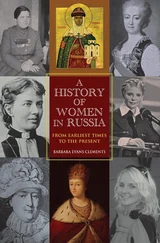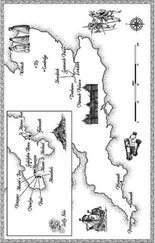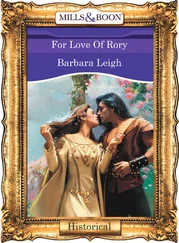The man held out his pipe and his fellows all looked at it appreciatively, hoping to savor some of it themselves. At last the smoker grinned. “He came from Hogsden Trent’s. That’s where I saw him come from, Hogsden Trent’s.”

S HAKESPEARE’S PURSUER, WHO WAS ON FOOT, WORE a dun-colored cowhide jerkin, black woolen breeches, and gray hose. There was nothing to distinguish him from any other working man, but Shakespeare had not lost his skill in spotting the one who wished not to be noticed.
He kicked his gray mare into a trot and soon saw the pursuer floundering behind him, walking fast, occasionally breaking into a run, but losing ground the whole time. At last he felt sure he was in the clear and turned westward through New Gate, then along the Strand, past Westminster and out into open country toward the little village of Chelsea. He stopped and looked about him. The road was busy with drays and carts and postriders.
He rode on a little further, then reined in some distance short of Shrewsbury House, tethering his horse to a sycamore on a piece of common land. He walked the last quarter mile to the north side of the building.
Shrewsbury House was an opulent, brick-built manor, facing the Thames on its southern side. Most visitors arrived by river at the landing stage, but Shakespeare went to the postern gate, where he was met by a guard.
“I would speak with the Countess of Shrewsbury.”
“Are you expected, sir?”
“No. But say I am sent by Sir Robert Cecil with a message which I must convey to her in person.”
“And your name, sir?”
“Marvell,” he said, giving his wife’s birth name. “John Marvell.”
“Please wait here.”
The guard returned in a few minutes and led Shakespeare into a magnificent hall, adorned with shields and splendid tapestries, many threaded with gold and silver. It well befitted the second most wealthy woman in the land. A liveried footman appeared and took over Shakespeare’s care from the guard, leading him through to another chamber.
Cecil had described Bess of Hardwick as a hard woman. From all he had heard, Shakespeare certainly knew her to be formidable: married four times, mother of eight children of whom five survived, grandmother to a host of well-bred grandchildren, sometime companion of the captive Mary Queen of Scots when her late husband, the Earl of Shrewsbury, was her keeper, and good friend of Elizabeth herself.
In the flesh, Bess of Hardwick did not disappoint. She was examining bolts of cloth laid out on the floor in front of her by a richly clad mercer and his three assistants. There were great lengths of taffeta and black damask, satins and silks. A tailor and haberdasher stood close by, with their own assistants, beside a table laden with quantities of intricate white and black lace, gauze, black velvet, and cambric.
She looked up at Shakespeare’s entrance and smiled warmly.
“Mr. Marvell? I don’t think I know you.”
Shakespeare bowed. “I am sent on an errand from Sir Robert Cecil, my lady. It is a matter of some urgency.” He glanced at the tradesmen. “May we speak alone?”
Bess nodded to the mercer and haberdasher and their assistants. “Gentlemen, if you would. And think on those prices I have offered, for they are fair.”
“My lady,” one of the merchants pleaded, “you will ruin us.”
“I will go no higher. Take it or leave it.”
They all bowed low and hurried from the room.
The Countess was not tall, neither was she a beauty, though she was very slender and healthy for an old woman of nearly sixty-five-six years senior to the Queen. She was strikingly dressed in black velvet and a broad ruff and wore a black coif atop her still-golden hair. Long strings of perfect pearls adorned her neck, cascading down to her narrow waist.
“This is all very secretive, Mr. Marvell. Please proceed.”
“It is a delicate matter, my lady. It concerns your granddaughter, the lady Arbella.”
“Is Sir Robert still worried about Arbella?” Bess’s attentive eyes revealed her intelligence as she spoke. “I do think he imagines I neglect my duties as guardian.”
“Indeed, I am sure he does not, my lady. He speaks most highly of your loving care for her upbringing and education.”
“But he fears Spanish plots. He thinks King Philip will send his mercenaries to spirit her away and make an Infanta of her and use her as a tool to steal the crown of England.”
“My lady, that is his concern. He wonders if you would agree to remove Lady Arbella to your holdings in the Midlands and North, that you might better protect her there.”
“Well, if that is what Sir Robert desires, then I shall do so. I hold Sir Robert in the highest esteem. We shall leave for Hardwick at the earliest opportunity.”
“Might I tell him how soon that will be?”
Bess smiled her warm smile once more, but Shakespeare thought he detected a hint of irritation. She was not one to be commanded.
“Well, let me think,” she said. “I have much to pack up and take with me-perhaps twenty wagonloads. I have two hundred and thirty household staff who must be provisioned for the long journey. There are clothes, linen, livestock, hangings and wondrous new paintings and tapestries to transport. It cannot be done in a midnight flit, if that is what you mean, Mr. Marvell.”
“Forgive me. I did not intend to discomfit you. I asked only that I might report back to Sir Robert.”
“Let us say two weeks, then. Three weeks at the most. Would that suit the next Principal Secretary?”
Shakespeare was certain that Cecil would not be at all happy, but there was nothing to be gained from argument. “I am sure he will be pleased at your cooperation, my lady. And most relieved that the lady Arbella will be out of harm’s way.”
Bess frowned, and though the smile was ever present she was obviously put out. “Mr. Marvell, I would have you know that I ensure my granddaughter is safe at all times, wherever we are. When we are at court, I never let her out of my sight. She is constantly chaperoned. And here at home, she is either with me or with my maids or her tutors. She is no more in harm’s way in Chelsea than she will be in Derbyshire.”
He bowed and said nothing.
She raised a hand. “But I have said I will do Sir Robert’s bidding. Let that be an end to it.”
Shakespeare began to understand how, from relatively humble beginnings, this woman had accumulated such wealth and power. He had one more question.
“May I ask about your household staff, my lady? I think it would be well if you were to re-examine all credentials and letters of recommendation of those close to her. I know that such a course of action would set Sir Robert’s mind at ease.”
“Then yet again I shall do as he wishes. And if I see one word in Spanish, or even the semblance of a Spanish name, I will dismiss them on the instant.”
Shakespeare found himself laughing. She was mocking him, but he supposed it was earned. He guessed, too, that she would do as he asked. If she had ambitions for her granddaughter, it was as much in her interest to keep her safe as it was for Cecil.
Shakespeare bowed low, thanked her once again for her forbearance, and the bluecoat appeared and escorted him out.
At the postern gate, he turned briefly and looked back at the house, with its intricate patterns of brickwork, its soaring chimneys, and its tall windows. He saw a girl at one of the windows. A girl in a cream and yellow dress. Her face was serious before its time. Her large, unblinking eyes seemed to be gazing into the distance, across the fields and woods, as if looking for someone or something. It was a face of the most unutterable sadness. As he looked, her eyes turned down and met his. Briefly, for two heartbeats, their eyes locked. Her expression did not change, but she looked away and moved from the window, back into her cavernous prison.
Читать дальше













